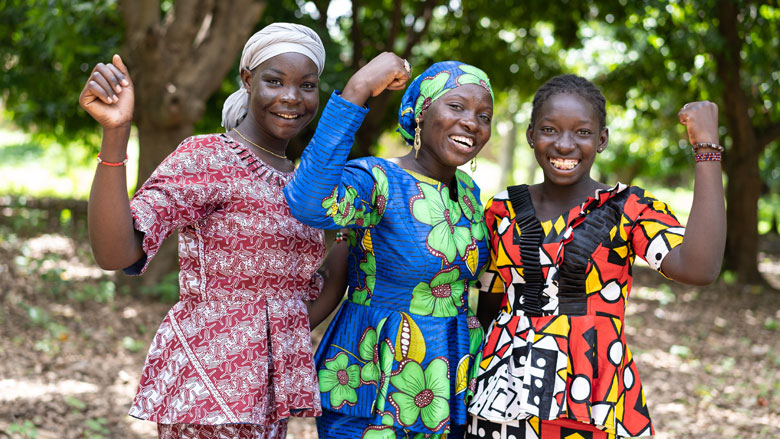
In 2023, BRAC International Microfinance (BI MF), with support from the Mastercard Foundation Accelerating Impact for Young Women (AIM) program, launched a Financial and Digital Literacy Training (FLT) program for women clients in Africa. The goal: equip women with the knowledge and skills to manage their finances more effectively. Delivered in weekly sessions over six months, the training covers a comprehensive range of topics including wellbeing, financial and digital literacy, and business development. Since launching, BI MF has reached more than 350,000 women in five countries, with 57% living in rural areas and 44% of them young women.
In our first FinDev Gateway blog, we talked about the pilot’s early results and how women were putting their knowledge into practice by saving more, investing in joint businesses, and strengthening social bonds. This year, we share a deeper look at FLT’s impact, with direct feedback from the women themselves on how the training has shaped their lives.
Improved outcomes for financial literacy training participants
Since 2019, we’ve partnered with 60 Decibels to carry out annual Lean DataSM surveys – short, meaningful conversations that reveal how our services are truly affecting our client’s lives, in terms of client social outcomes, experience and satisfaction. The 2024 report, based on surveys with 1,929 clients (out of which almost half received FLT) across the BI MF entities, included a special focus on the impact of this curriculum. Here’s what we learned:
1. Financial literacy training improves social outcomes
FLT proved to be more than just a training; it was a catalyst for change, enabling clients to make significant advancements in a variety of areas. BI MF measures its impact across five social outcome areas – quality of life, women’s economic empowerment, self-employment and livelihood opportunities, financial resilience, and household welfare (see graph below) – to calculate a social outcomes score. Clients who completed the training reported a 71% average social outcomes score, compared to 66% for those who did not receive FLT. The difference was greatest for financial resilience (7 percentage points higher), household welfare (6 points higher), and overall quality of life (6 points higher). In Tanzania and Liberia, where clients who received FLT outperformed their peers by 13 and 11 percentage points, respectively, the effect was particularly strong.
2. Training in financial literacy can make the customer experience better
Still, FLT recipients said they had a better client experience, were more satisfied, and had a better understanding of loans in countries where the scores for social outcomes had improved less significantly. Compared to clients who did not receive FLT, those who did are more likely to continue working with BRAC the following year (88% vs. 82%). This could result in improvements in client retention (meaning their tenure with BRAC), leading to deeper impact in the long run.
3. Training in financial literacy has a greater effect on young women
Women of all ages who received FLT had better social outcomes scores than those who did not, but young women between the ages of 18 and 35 saw the greatest improvement. Overall quality of life for young women who received FLT was 8 percentage points higher than that of their non-FLT peers (75% v. 67%), compared to the 6-percentage point gain for women over 35 (72% v. 66%). In addition, their ability to save was 12 percentage points higher than their peers (68% v. 56%) vs. an 8-percentage point difference for women over 35 (65% v. 57%).
Why are young women’s gains greater than those of older clients? One reason could be their limited experience in managing businesses and household finances. By providing young women with the knowledge and abilities they need to confidently kickstart their entrepreneurial journeys, the FLT curriculum helps close this gap.
The way forward: scaling and deepening impact
BI MF is committed to improving the FLT delivery model in light of these encouraging results in order to ensure that the curriculum can be effectively and sustainably scaled across our entire client base. We are gradually broadening the curriculum to address the unique needs of our clients and exploring how FLT can be adapted for smallholder farmers. A new chapter on climate resilience, which teaches customers how to recognize and deal with the negative effects of climate change, is a significant addition. In parallel, BI MF is testing improvements to its loan and savings products in order to give young women access to financial services that can meet their specific needs and help them succeed as entrepreneurs. For responsible financial institutions aiming to build resilience among their clients, financial and digital literacy can be an effective way to strengthen livelihoods and create lasting impact. BRAC believes a holistic approach is important for true transformative impact and financial and digital literacy training is one way in which we are looking to deliver impact to our clients.
